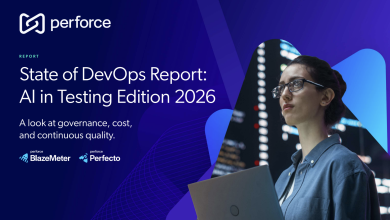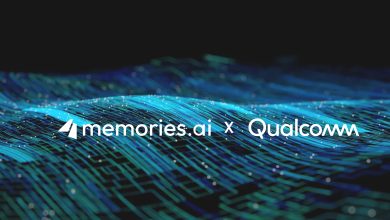
Artificial intelligence (AI) will undoubtedly have a major impact on society, particularly when paired with blockchain technology, with ramifications for everything from the labor market to human cognition.
News of AI making further inroads into our daily lives is inescapable nowadays, particularly regarding its potential to radically reshape society. Some utopians envision a complete eradication of the need to work, so we all just lounge about drinking milkshakes and video chatting with friends, like those human blobs in Wall-E.
On the other hand, AI doomers imagine a Terminator-like dystopian hellscape in which humans have been rendered redundant/superfluous and are now hunted for sport by our robot overlords. This latter version appears to be the more prevalent of the two scenarios, although I think these fears are overblown.
The idea of superintelligent AI, in which AI surpasses human cognitive abilities across all domains, remains a theoretical concept very much. For one thing, the technology just isn’t there yet. For another, there are fundamental distinctions between how human brains and AI function.
I believe AI will be a tool that enhances human intelligence, but it won’t replace human intelligence. Consider the impact that the introduction of writing had on human development. Before writing, knowledge had to be stored mentally and transmitted orally, with the inevitable result that knowledge was increasingly altered the further one got from the source (think of the kids’ game ‘telephone’).
Writing allowed thoughts/memories/insights to spread farther than an individual’s ability to physically travel, while also ensuring that this knowledge was relayed more accurately. The result was the ability to transfer intelligence from village to village, town to town, across cities, countries, continents and oceans. Humanity sharing knowledge in this fashion led to several radical concepts, including AI.
Just as writing helped us externalize memory and foster cumulative knowledge building, AI promises to revolutionize how humans process information and solve problems. Current AI systems, like those based on GPT-4, are already helping to enhance human productivity and decision-making.
AI is good at automating routine tasks but also processing reams of data much faster and more comprehensively than humans, while also identifying patterns that human eyes might miss. This extension of human capabilities offers all sorts of benefits in areas like diagnostic medicine, climate modelling, financial forecasting, etc.
But for all its marvels, AI can’t escape the ‘garbage in = garbage out’ rule, and this is where blockchain technology comes in. AI systems are useless without data, but they’re worse than useless if they rely on inaccurate data. Blockchain technology can offer essential infrastructure for securing and verifying the data on which AI relies.
AI large language models (LLMs) occasionally regurgitate ‘hallucinations’ in response to customer prompts. The root causes of these factual gaffes are still a matter of some debate, but AI’s rapacious gorging on any public data sources ensures that a good deal of erroneous information gets baked into these LLMs’ secret sauce.
LLMs trained on immutable blockchain-stored data from verified sources could help reduce the frequency and severity of hallucinations. Blockchain storage is still not at the point where it could fully support a general knowledge AI chatbot. But for select areas of focus, there are likely cases in which the desire for AI accuracy would trump the need to be all things to all people.
And some blockchains are further down this road than others. The BSV Blockchain is the only network with the proven ability to scale to meet AI’s data needs, while also offering robust security that ensures trust and data integrity.
BSV-based smart contracts can automatically manage intellectual property (IP) ownership and revenues, like electronic data interchange (EDI) systems, automating transactions and ensuring secure, transparent exchanges of data.
Smart contracts can also automatically execute, verify, and enforce the terms of IP agreements. This eliminates the need for intermediaries and streamlines the management of IP rights and revenue distribution while reducing the likelihood of costly disputes.
Effective IP management via smart contracts can require additional infrastructure to function seamlessly, like databases of products and associated metadata. This is where nChain, a key player in the blockchain space, comes into play.
nChain holds significant IP related to these capabilities, ensuring that BSV can be effectively utilized for managing IP ownership and automating revenue flows. nChain’s innovations support the use of BSV for advanced applications, adding another layer of efficiency and trust to the integration of AI and blockchain.
Moreover, the value of IP will increase significantly as automated systems and manufacturing become more prevalent, driving innovation and efficiency. IP will become a key asset in maintaining competitive advantages, while automated IP management systems will be crucial to ensuring creators and innovators receive the rewards they’re rightly owed.
The transformative potential of AI and blockchain technologies ensures that they will each play a pivotal role in shaping the future. Synergies abound from the integration of AI as a powerful cognitive tool with blockchain as a secure infrastructure for data and IP management.
Even more synergies will be realized when AI and BSV combine with the IPv6 standard to bring about Metanet, an economically integrated online system that enables cost-effective, instant micropayments. Metanet represents a better, more inclusive, and dynamic internet, through which webpages, services and every single piece of online data can be easily accessed and monetized in a direct-to-consumer model.
While there might not be mountains of skulls like in the Terminator movies, there will be economic casualties from AI’s rise, just as there have been following the introduction of any revolutionary technology. And while it’s not always pretty, economies have a way of resetting themselves following significant technological upheaval.
Consider that as much as 90% of pre-industrial revolution labour was involved in agriculture. That number now stands around one-quarter, with most of the other 65% or so shifting to new occupations that didn’t exist before this shift.
So yes, AI will have an impact on society. But by focusing on the practical applications of AI and blockchain technologies, we can harness their potential to drive innovation, efficiency, and growth across various sectors, ultimately benefiting society as a whole.



